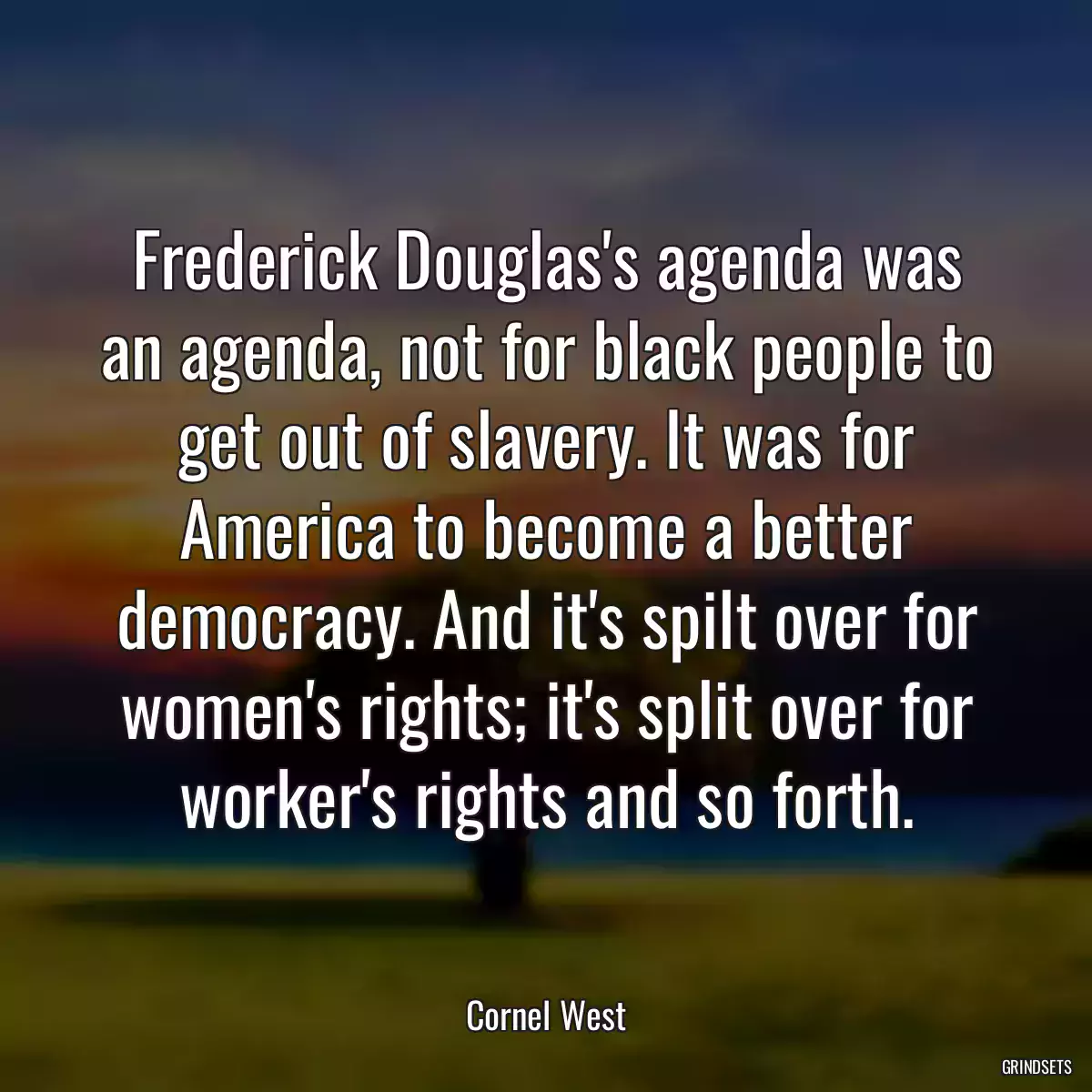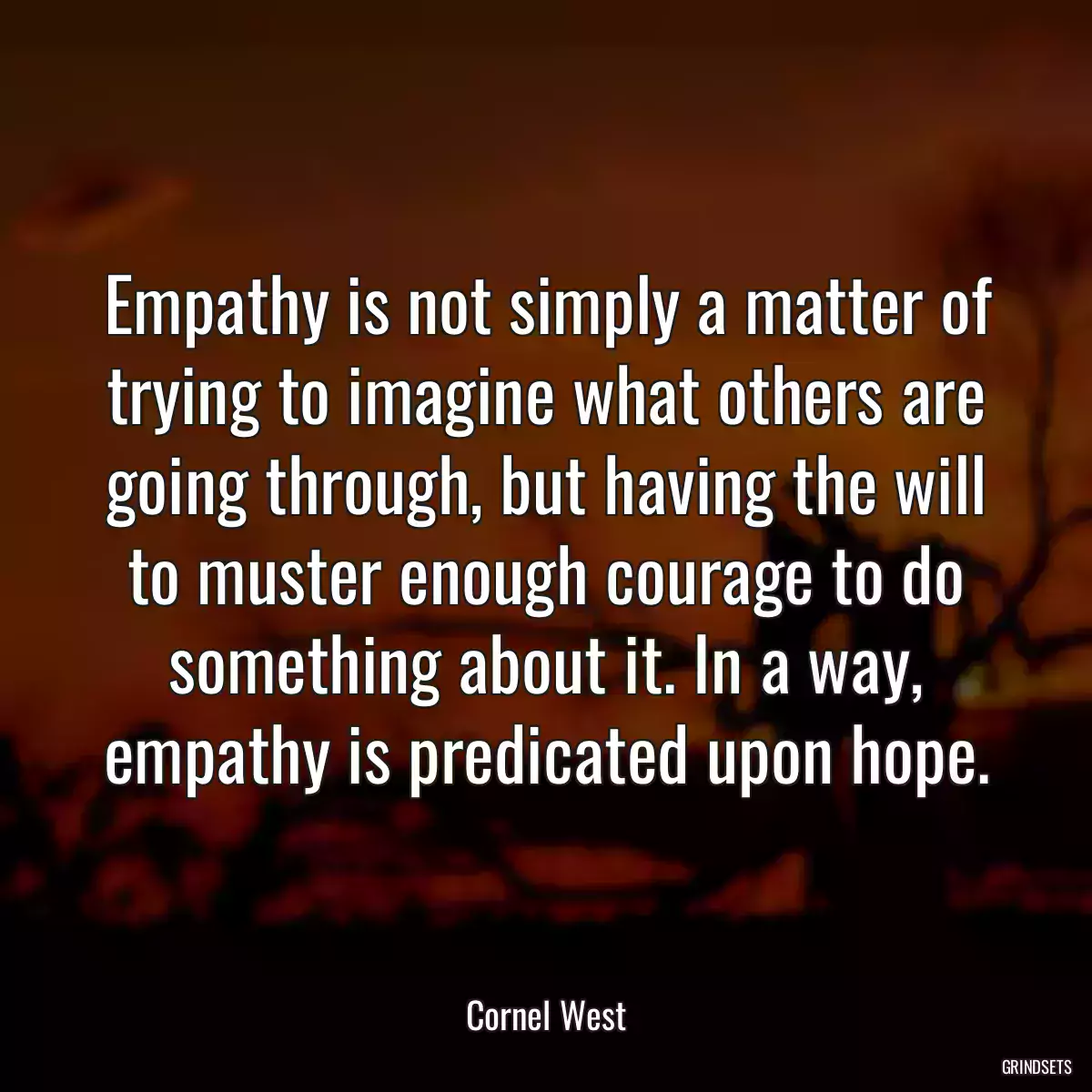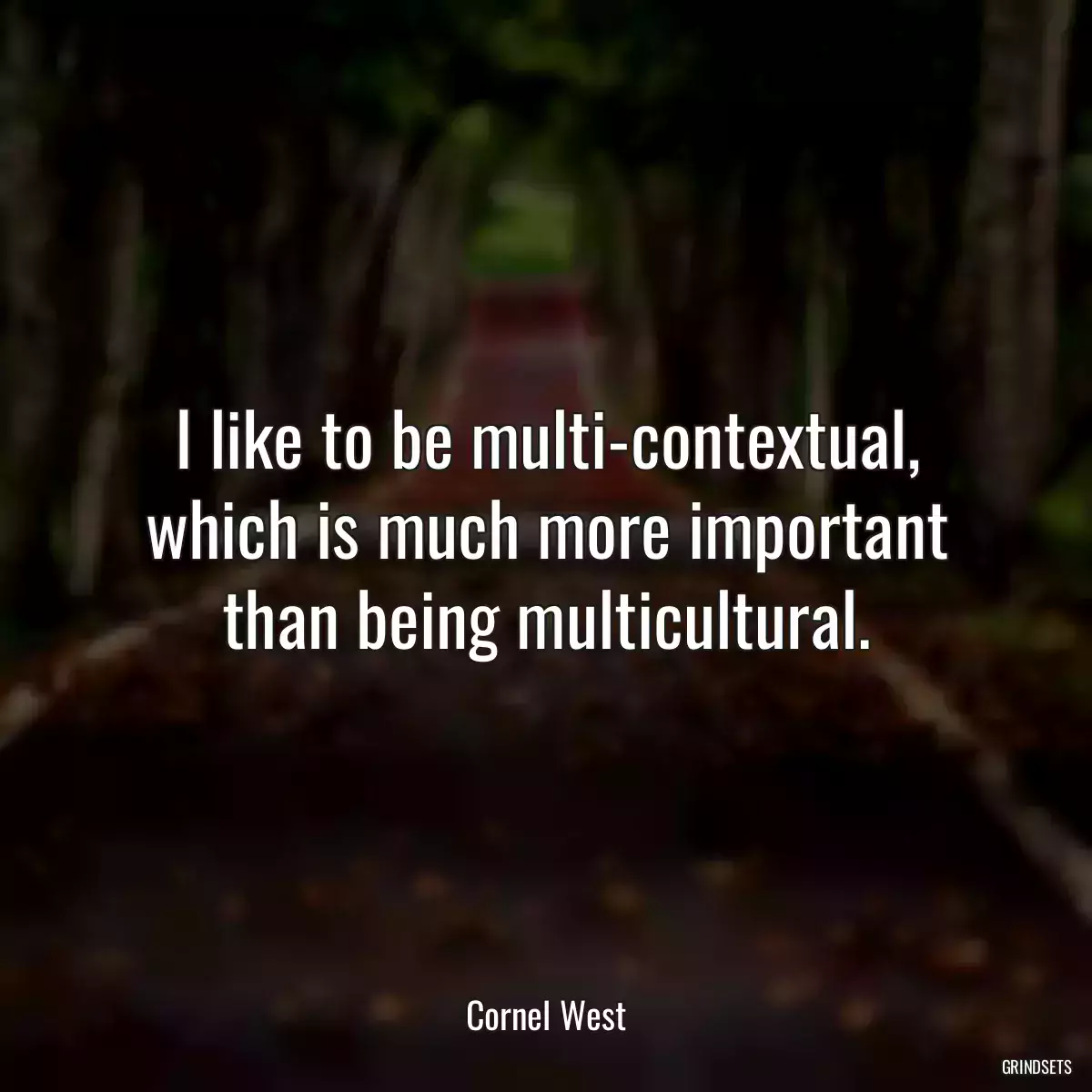
Quotes Cornel West - page 3
Find dozens of Cornel West with images to copy and share.

All talks about legacies of white supremacy must be tied to empowering the lives of poor and working people as a whole. The black agenda - from Frederick Douglas to A. Philip Randolph, Martin Luther King Jr, Fannie Lou Hammer to Ella Baker - has always been tied to race talk inseparable from expanding possibilities of democracy, expanding empowerment of everyday people.
When black America is on the move, America is on the move.
When you think of 244 years of slavery and 81 years of that finally you are going to be allowed to be part of the pool from which people choose jobs. That's not a substantive kind of move, but it was very important.
You may also like
If the churches don't move, much of the community won't move. We've got a situation in which a black church is still a major institution in the black community where 55 percent of the black folk attend and over 75 pass through its doors.
And so the question becomes, what you do in the meantime? And you go - if you're forever on the move, especially in the life of the mind; forever reading veraciously, writing, speaking, lecturing, trying to unsettle minds, trying to touch souls, trying to encourage and inspire, on the one hand, but also trying to unhouse and unnerve people, so that they have to reexamine themselves, society and the world on the others. There's tremendous joy in it.
I'm a bluesman moving through a blues-soaked America, a blues-soaked world, a planet where catastrophe and celebration... "Joy and Pain" - sit side by side. The blues started off in some field, in some plantation, in some mind, in some imagination, in some heart. The blues blew over to the next plantation, and then the next state. The blues went south to north, got electrified and even sanctified. The blues got mixed up with jazz and gospel and rock and roll.
We can't have a freedom struggle without free choice.
To be human, at the most profound level, is to encounter honestly the inescapable circumstances that constrain us, yet muster the courage to struggle compassionately for our own unique individualities and for more democratic and free societies.

Hope and optimism are different. Optimism tends to be based on the notion that there's enough evidence out there to believe things are gonna be better, much more rational, deeply secular, whereas hope looks at the evidence and says, "It doesn't look good at all. Doesn't look good at all. Gonna go beyond the evidence to create new possibilities based on visions that become contagious to allow people to engage in heroic actions always against the odds, no guarantee whatsoever." That's hope. I'm a prisoner of hope, though. Gonna die a prisoner of hope.
There is always a very delicate interplay between individual actions and institutional conditions.
There is no such thing as institutional conditions without any individual actions and no such thing as individual action without institutional conditions. So there is always personal responsibility.
Affirmative action is something that I think is very crucial and necessary.
There is no fundamental social change by being simply of individual and interpersonal actions. You have to have organizations and institutions that make a fundamental difference.
The problem is that affirmative action could never really get at the issue of corporate power in the workplace, and so you ended up with the downsizing; you ended up with de-industrializing. You ended up with the marginalizing of working people and working poor people even while affirmative action was taking place, and a new black middle class was expanding.
You can't move forward until you look back.
Prophetic pragmatism attempts to keep alive the sense of alternative ways of life and of struggle based on the best of the past. In this sense, the praxis of prophetic pragmatism is tragic action with revolutionary intent, usually reformist consequences and always visionary outlook.
You may also like

I'm not saying that President Obama should be exempt from criticism, nor do I believe it is some act of racial treason for a black person to hold our president accountable for his actions.